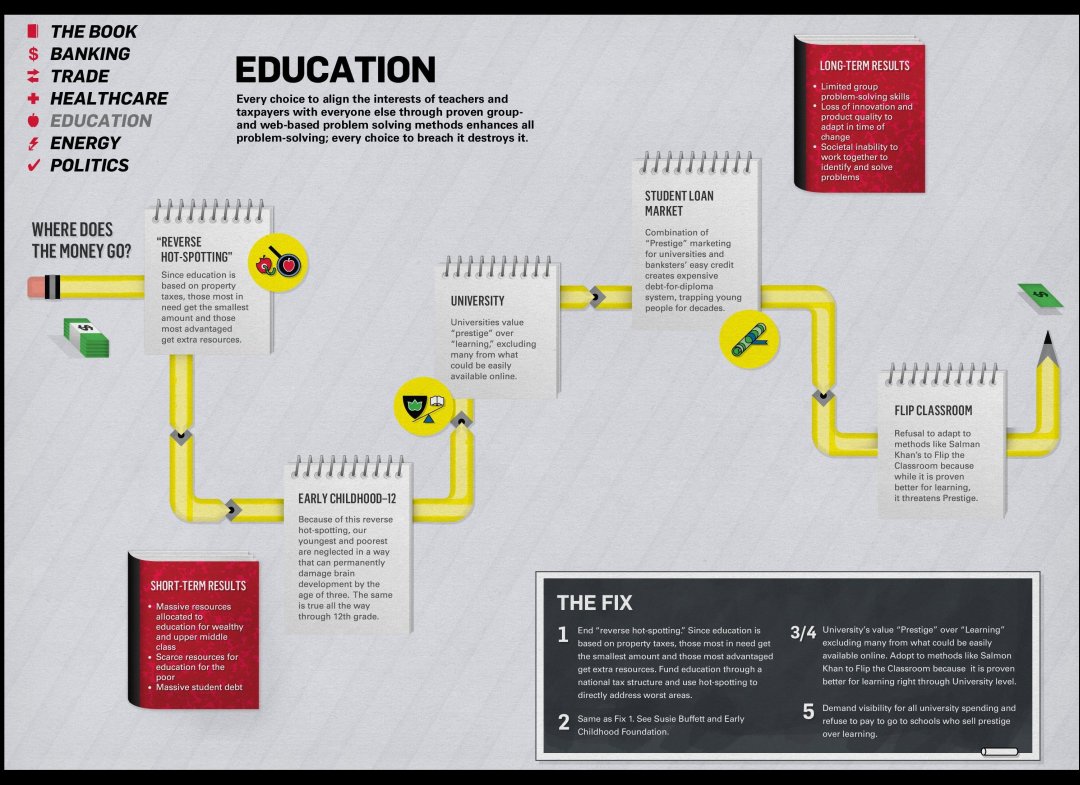Posted: 02/ 3/2012 10:23 am

Imagine a product so irresistible that most Americans thought they couldn't live without it. Every President talked of its importance, and it was perceived of as the key to you or your child's future. There was a limited supply, and prices kept going up. The best business to be in would be lending to people so they can buy it.
I'm talking about higher education, and student loans. In my new book Greedy Bastards, I'm letting you into the tricks used by those who run our culture to profit from misdirection. Like banks and oil companies, those who run our universities push the hidden risk they incur to taxpayers. It's not as obvious as what we saw with subprime home loans, but it is potentially as destructive.
In President Obama's first speech to a joint session of Congress, he said "education in no longer a pathway to opportunity, it is a prerequisite." It's no wonder - conventional wisdom says that those with college degrees earn roughly a million more dollars over their lives than those without them. And there is a vast apparatus of lending institutions and Federal guarantees set up to help put people into college. They do this not by keeping tuition free or low, as we did as a country after World War II, but by helping people get access to student loans.
This is the essence of what I've been calling The Very Bad Deal, where costs are deferred while benefits accrue upfront. If you get a student loan, you get to attend college, and college is apparently the key to earning more over your lifetime, to "opportunity". But student debt has some very nasty tricks and traps that most 18 year olds aren't aware of when they sign on the dotted line, and college may not be the opportunity gateway we've been assured it is.
The scale of the deal is vast and getting bigger - two thirds of those who attend college do so with borrowed money. In August of 2010, the Wall Street reported that student loan debt surpassed credit card debt for the first time in history. This amount is now sitting at roughly a trillion dollars. Higher education inflation is the higher than health care inflation, and two and a half times the rate of normal inflation. Are students really learning two and a half times as much?
Of course not. What is happening is that universities have pricing power, and the Greedy Bastard behavior encourages them to compete on facilities and brand-name faculties rather than price and quality. The Chronicle of Higher Education has described "an arms race of expenditures triggered by the pursuit of prestige." Student debt also distorts pricing. If students had to pay the full freight in college, they might be more price-sensitive consumers. But since the costs of the education they are receiving are hidden, they don't pressure universities to reign in costs. Lavish living environments, pointlessly luxurious sports facilities, and high salaries for administrators are just symptoms of a system where costs have become irrelevant.
Of course, someone must eventually pay that cost, which is increasingly borne by the current and future generation. While college is supposedly a great investment, those who graduated in the midst of the Great Recession from 2008-2010 could not find the good jobs a college diploma supposedly assured them. Tamara Draut, an expert on educational debt, told me that we now "have a whole generation twenty-four thousand dollars in debt... they have graduated but nobody will hire them. They're back at home in their childhood bedroom." It gets worse - student debt is not dischargeable in bankruptcy, so it's lifelong. And there's no guarantee college degrees will serve the same income-producing function they have for decades.
Nearly everyone I've spoken to thinks this system is fixable if we get rid of the incentives that lead to Greedy Bastard--style profit-taking. Much university spending doesn't go to learning, so if we made that spending transparent we could take on cost structures. We don't have to go to the universities that do prestige marketing, we don't have to hire from them, and we don't have to spend our dollars with them. This would lead to innovations in education that could take advantage of technology to increase learning. And we can make student lending more equitable and transparent, so 18 year olds aren't signing their financial lives away.
We spoke with The Huffington Post's Chris Kirkham in depth on the topic -- take a listen below.

No comments:
Post a Comment